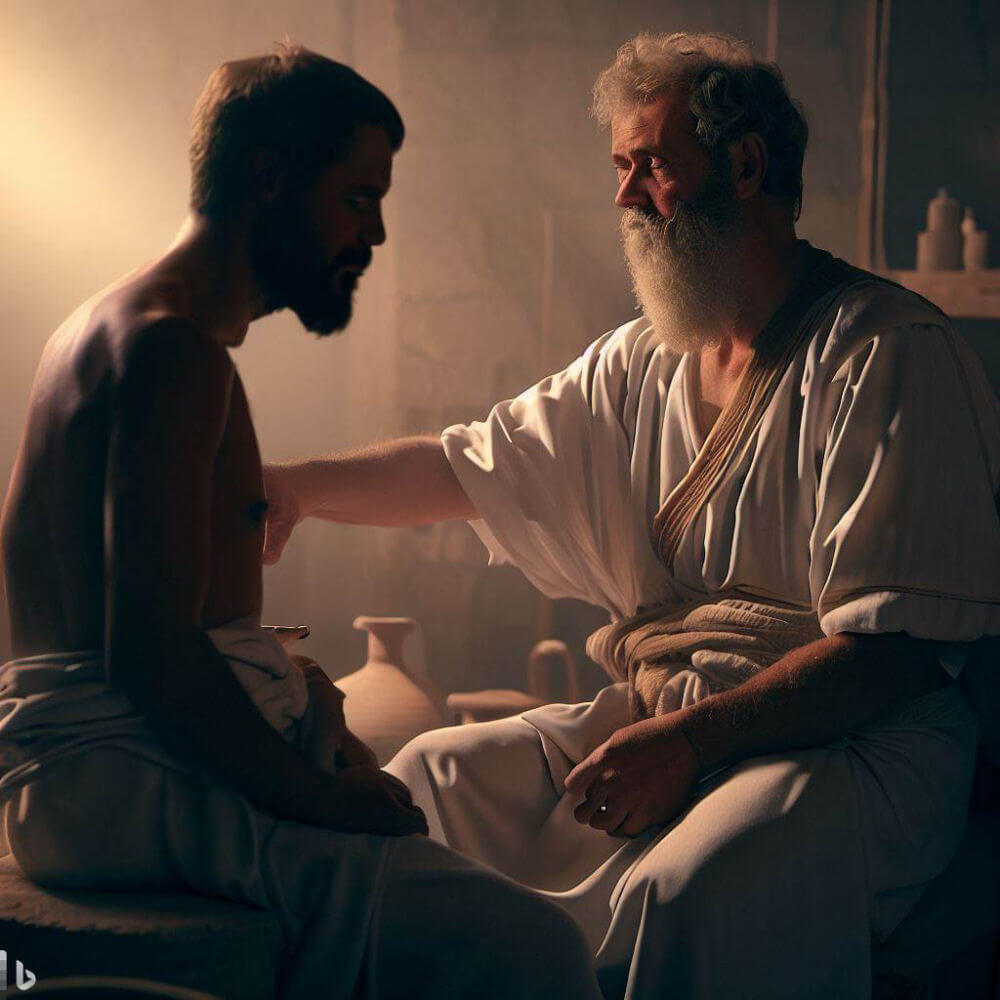
Ancient Roman Doctors
The 'doctors' in ancient Rome were not nearly as highly regarded as the doctors in Greece.
The profession itself, outside of the legions, was considered a low social position, fit for slaves, freedmen and non-latin citizens, mainly Greeks.
While there were some who were respected, most were considered just as they were: cheaters, liars and quacks.
The bulk of doctors, at least early on, were self-taught or apprenticed practitioners who simply claimed to be healers, with little basis in real medical knowledge.
Many doctors did try to find effective treatments and perform a valuable service to the community, but even more were simply in it to con and cheat their patients. As there were no licensing boards, no formal requirements or education for entrance to the profession, anyone could call himself a doctor.
If his methods were successful, he attracted more patients, if not, they simply moved on to another career.
Wealthier, and more respected physicians, set up shop like any normal practice today, with an office and staff. Others simply advertised their services on the streets, going so far as to perform simple surgeries in front of crowds to increase their notoriety.
Others acted as 'snake oil' salesmen, selling any number of products along with their treatments. Beauty supplies and cosmetics were commonly purchased from doctors.
Nearly all would attempt to treat any ailment provided the price was right, knowing their treatments did little good, if not more harm.
There is even evidence of doctors acting as assassins, willingly poisoning patients in the guise of giving them care, though this was rare and would lead to a short professional career.
With the introduction of a medical school in the 1st century AD, the health care of the ancient Roman world become more uniform and practical; but for the average citizen, life was better without the need for a doctor.
Surgeons however, especially those in the legions, were highly skilled and coveted in private life. Research and advances made by doctors on the battlefield became the mainstay of human medicine for nearly two millenia.
Women also performed an important service to the field of medicine. As a tradition last lasted for centuries, midwives delivered babies and became experts in women's health. These skilled medical care givers often filled the void left by the ignorance of doctors, and despite high birth mortality rates, went a long way towards providing quality service to Roman women.
Roman Surgery
Although the so called doctors of the day were mostly inadequate at best, Roman surgeons were highly advanced and skilled professionals. A detailed knowledge of anatomy and its functions, thanks primarily to having to deal with military wounds, led to many surgical operations in line with success rates enjoyed in the modern era.
Most surgeries in the ancient world were likely of the low impact variety such as tumor removal and hernia operations, while more extensive surgeries certainly occurred under military care.
Trepanation was a form of brain surgery designed to relieve pressure and cure headaches. Using a drill, a hole in the skull not only worked to relieve the pressure, but patients had a high survival rate.
Cataract surgery was also known. A thin needle was pushed though the eye to break up the cataract and the remaining pieces suctioned out through a long tube. Evidence suggests this procedure at least had a moderate rate of vision improvement success.
A form of ancient cosmetic surgery was also practiced. Excess skin or tissues could be trimmed from various parts to improve the appearance. Freed slaves also were common customers of branding removal. While an expensive procedure, being able to mask the history of service as a slave was a valuable operation in Roman society.
Did you know...
The best known Roman doctor, Claudius Galen, studied medicine in Alexandria, Egypt and became the surgeon to a school of gladiators. Unusually for a Greek, he moved to Rome, where he revived Hippocrates' view on diseases.
Did you know...
Evidence provided by a skeleton found at Cappadocia indicates that the earliest brain surgery (trepanation) known in the world was performed over 6,000 years ago.



